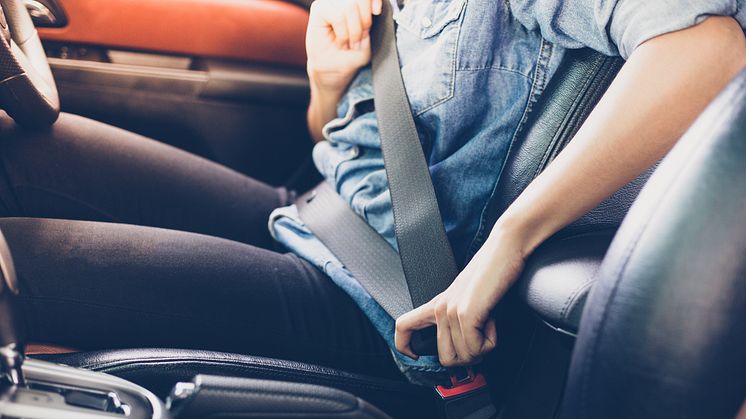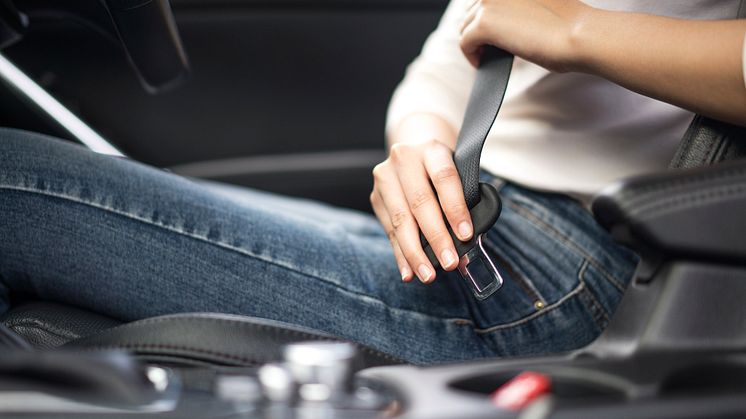
Press release -
Seven-in-10 motorists think responsibility for passengers to ‘belt up’ should lie with the driver
More than two-thirds of motorists (68%) believe drivers should be responsible for ensuring all their passengers wear seatbelts, according to new RAC research released to coincide with today’s 40-year seatbelt law anniversary.¹
Currently, drivers only have responsibility to make sure they and any children in their vehicles are buckled up properly – with the latter potentially needing to be in a child car seat or booster seat depending on their age or height. The RAC’s research suggests this responsibility should be broadened to include all passengers, with a third of respondents (33%) also believing that drivers should be penalised in the event anyone they’re travelling with is caught not wearing a seatbelt and putting themselves at risk.
With today marking 40 years since it became mandatory for drivers to wear seatbelts in vehicles that had them fitted, the RAC’s research also found that a quarter of motorists (24%) believe the current law – where a driver can be fined up to £500 for not buckling up – is too lenient, with a clear majority of these (69%) thinking that those who break the law should pay both a fine and receive at least three points on their licences. This is something that may come to pass as the Government stated last Autumn it is considering the merits of introducing penalty points for those driving without seatbelts.
Four per cent of drivers – the equivalent of around 1.7m full driving licence holders in Great Britain² – admit to driving without a seatbelt over the last 12 months, with around a fifth of these (22%) saying they don’t belt up at least half the time. In contrast, 7% of respondents admitted to not wearing a seatbelt when travelling as passengers in other vehicles. The law states there are only very few exceptions for not buckling up, including when deemed medically exempt or when reversing a vehicle.
When it comes to what drivers believe could improve compliance with the existing law and help keep everyone safe, around half (48%) would like to see those caught sent on dedicated ‘seatbelt awareness courses’ – akin to the sort of courses attended by those caught speeding – while more than a third (36%) favour either more police on the roads or the use of camera-based technology to catch people breaking the law in this way. In a trial of such cameras last month, National Highways spotted hundreds of instances where drivers were either not properly restrained or were talking on handheld mobile phones.
RAC road safety spokesman Simon Williams said:
“Forty years on from the introduction of what is undeniably one the most important road safety laws, it’s still the case that far too many people don’t wear seatbelts – something that’s a factor in around 30% of all road deaths each year. It’s also sadly the case that people are twice as likely to die in a crash if they’re not wearing one.
“The statistics are stark, yet some people are still prepared to take the risk and not wear a seatbelt. This obviously begs the question what can be done next. Today’s anniversary, perhaps, provides the ideal moment for the Government to show it’s serious about improving safety on our roads and put an action plan in place for getting more of us to buckle up in the first place.
“For most people, getting into a car and putting on a seatbelt is second nature but it’s obvious more needs to be done to get those who haven’t developed this habit to change their ways. Our research shows drivers are clearly supportive of greater penalties, which we know the Government is considering. But arguably, toughening the law isn’t enough: drivers need to think there’s a good chance of being caught in the first place. If they don’t, there’s every chance they’ll carry on as normal – just as we see day-in, day-out with plenty of drivers still prepared to illegally use a handheld phone while behind the wheel.
“A national advertising campaign around the dangers of not wearing a seatbelt could also bring about a positive change in behaviour, and it’s something a quarter of drivers we surveyed said would improve compliance with the law.”
Topics
Categories
Notes to Editors
¹ RAC research conducted among 1,800 drivers during January 2023
² Based on there being 41.46m full-time driving licence holders as of October 2022 (government dataset DRL0101)
The press office email address is press.office@rac.co.uk and media centre is at media.rac.co.uk. Please note: the press office is unable to help with individual customer enquiries - please visit the RAC contacts page to find the right contact.
About the RAC
The RAC, an iconic UK brand, provides complete peace of mind to 13 million UK private and business drivers, whatever their motoring needs. As well as its premium nationwide breakdown assistance service – with an expert branded patrol workforce attending more than two million breakdowns every year – it offers a wide range of market-leading products across insurance, legal services, vehicle inspections and service, maintenance and repair. The RAC is also at the forefront in helping drivers make the switch to electric vehicles and leads in the development of new solutions for businesses and OEMs, partnering with the best in the motoring and mobility space.
Visit the RAC website.


